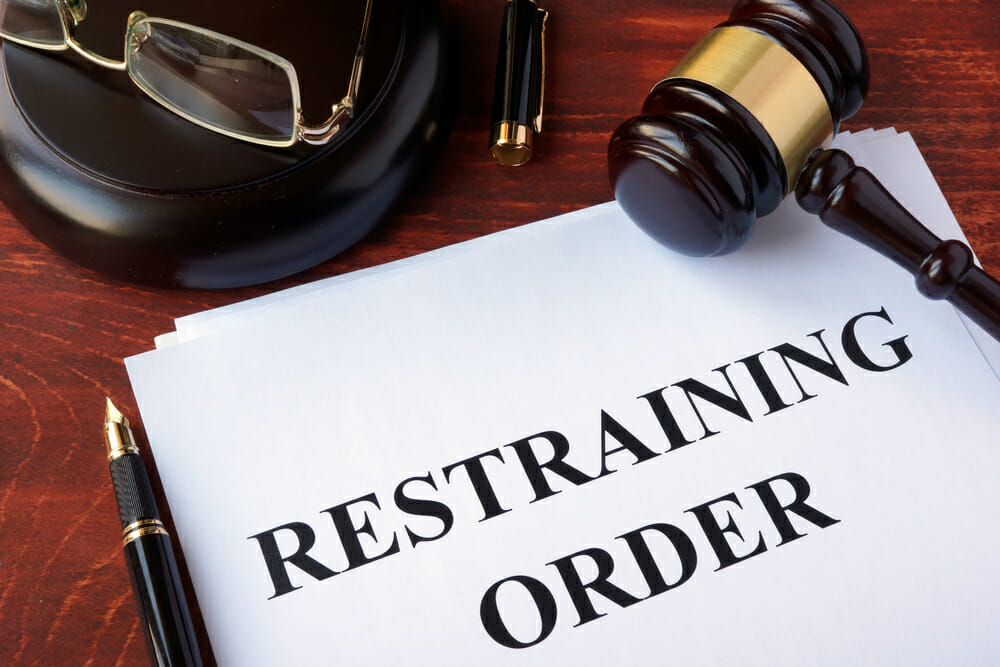
Restraining orders can drastically change your life as you know it. With impacts on your relationship, family, mental health, job, being unprepared for such an outcome can be devastating. But does a restraining order affect your record? And how about contesting a restraining order?
Here’s everything you need to know about the effects of a restraining order on your life, and what it means going forward.
What is a restraining order?
A restraining order can be filed against a person to protect them against family violence, or personal violence such as harassment, intimidation, whether that’s once or ongoing. A restraining order essentially makes contact, communication, or even being near another person illegal.
But a restraining order doesn’t necessarily have to be about committing violence to a person – it can also mean against someone’s property, or merely a threat to commit such acts.
There are three main types of restraining orders:
- A family violence restraining order (FVRO) applies to someone who is in a relationship with someone else such as a de facto partner, or spouse, or family member.
- A violence restraining order (VRO) applies to anyone who is not in a domestic relationship or family relationship.
- A misconduct restraining order (MRO) applies to anyone, however, it is aimed at preventing public disturbance and not more serious acts of abuse or violence.
In some cases, a police officer can introduce a 72-hour temporary order when responding to requests for assistance in the case of domestic violence. This temporary court order allows someone the time to file for a restraining order in the meantime.
How does a restraining order affect you?
A successful Restraining order application against the respondent in itself does not constitute a criminal offence. However, if you breach any restraining order conditions, you can face heavy fines and potentially time in jail. A restraining order can affect people in many different ways depending on who is filling it against you and the type of restraining order in question.
Here are the basics of how a restraining order can affect your life:
- Zero contact with the protected person. This means not going within a certain radius of the person who has filed against you.
- Zero communication with the protected person- often it’s the case that all communication must be stopped, whether that’s phone calls, messages, or letters.
- Restrictions against spending time with concerned individuals.
- Certain prohibitions, including the ability to own or possess a firearm licence.
These conditions can be negotiated prior to any trial hearings.
How long will a restraining order last?
Once an application for a VRO or an FVRO has been made at the Magistrates court, the matter will then be assigned a hearing in front of a magistrate.
If the court is convinced about the grounds of the application a restraining order will be enacted, however in some cases only a temporary 6-month order will be granted until a final order is made in court. Once made final, a violence restraining order (VRO) or family violence restraining order (FVRO) can last up to 2 years.
What happens if I breach a restraining order?
If you reach a restraining order it automatically becomes a criminal offence. As outlined in the Restraining Orders Act 1997, the penalty for breach of a VRO is a fine of up to $6,000, and imprisonment for up to two years or both. Breaching an MRO can result in fines up to $1000.
With the new legislation against repeated domestic violence offenders, a breach of a restraining order can be an issue.
Does a restraining order affect your record?
Unless a restraining order is breached, it will not appear on your criminal record. However, it will be recorded both by the police and in court records, if you fall foul of the law in the future, a past restraining order can be used as evidence against you in court.
Do restraining orders appear on background checks?
No, they don’t. However, if the restraining order comes up in another legal context, this could be considered in some legal jurisdictions.
Will a restraining order ruin my career?
Probably not. But this depends on what job you’re aiming for, and the chances of appearing in a family-related court case again. If the respondent does not breach a restraining final order or interim order, and no criminal charges are laid against the respondent, then this should not present to be an issue.
Can I contest a restraining order?
Yes, you can contest a restraining order. But it may be difficult if you don’t know what you’re doing. Your best chances lie in seeking professional legal assistance from a lawyer who knows how to proceed. If you’re wanting to understand your options and find out about contesting a restraining order, get in contact with a professional lawyer today.
Think a restraining order is falsely obtained? Get legal help today.
If you’re facing a restraining order, or worse, false allegations in order to secure a restraining order, everything you do next is critical. In deciding how to respond to showing up for a court hearing, and making sure you don’t accidentally breach and end up with a criminal conviction – getting professional legal assistance from a criminal lawyer Perth, is your best chance at coming out clean.
Don’t leave it up to chance. Give WN Legal a call today for a free 30-minute consultation.
Readers of this website should contact their attorney for advice on any particular legal matter. Only your attorney can provide assurances that the information contained herein and your interpretation of it are applicable or appropriate to your situation. No reader, user, or browser of this site should act or refrain from acting based on information on this site without first seeking legal advice from counsel in the relevant jurisdiction. Use of, and access to, this website or any of the links or resources contained within the site do not create an attorney-client relationship between the reader, user, or browser and website authors, contributors, contributing law firms, or committee members and their respective employers.







